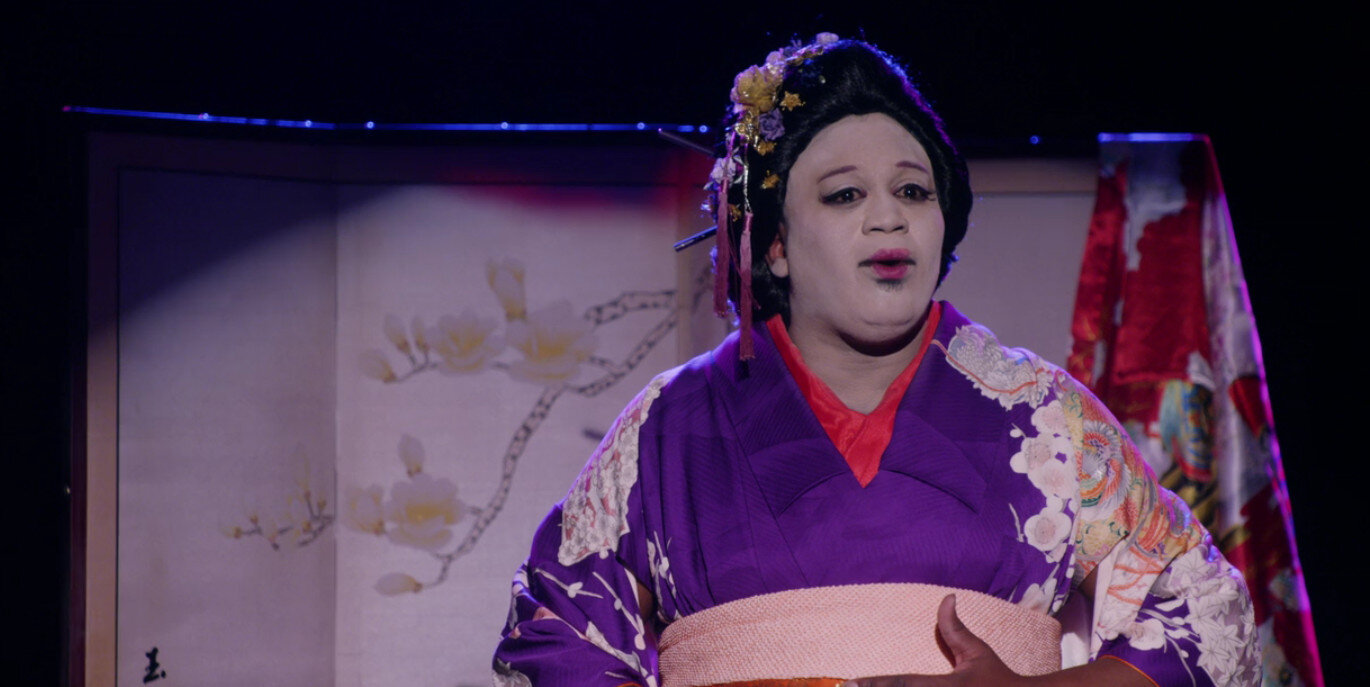Tina Fey and the Impossibility of Opting Out
In a 2015 interview, Tina Fey infamously said of the criticism she had received, “We did an [‘Unbreakable Kimmy Schmidt’] episode and the internet was in a whirlwind, calling it ‘racist,’ but my new goal is not to explain jokes. I feel like we put so much effort into writing and crafting everything, they need to speak for themselves. There’s a real culture of demanding apologies, and I’m opting out of that.”
Five years later, Fey responded to the long-overdue racial reckoning brought on by George Floyd’s murder by essentially apologizing profusely for 30 Rock’s use of blackface in a memo politely asking asking streaming services, “As we strive to do the work and do better in regards to race in America, we believe that these episodes featuring actors in race-changing makeup are best taken out of circulation.”
What changed in the interim? Just about everything, it is safe to say. In 2015, Fey imagined that she had the option of “opting out” of a “culture demanding apologies.”
That is obviously no longer the case. In 2015, Fey could delude herself into thinking that longstanding allegations of insensitivity at best and racism at worst involving her work at Saturday Night Live, 30 Rock, Mean Girls, Unbreakable Kimmy Schmidt and Whiskey Foxtrot Tango could be dismissed as the hyper-sensitivity of humorless scolds who can’t take a joke and filter everything through the prism of identity politics.
That obviously is no longer the case. In the ensuing years, criticism towards Fey and her blind spots involving race and representation have increased rather than dissipated.
When Tina Fey received the prestigious Mark Twain Prize in 2010 she joked presciently, “I hope, that like Mark Twain, 100 years from now people will see my work and think 'wow, that is actually pretty racist.”
Fey didn’t need to wait one hundred years. A mere decade later, Fey would develop such a reputation for being problematic that her efforts to undo the racial mistakes of the past by removing the blackface episodes of 30 Rock Rock would be widely criticized as a cosmetic, superficial attempt to whitewash her past rather than an authentic display of remorse and growth.
It certainly does not help that Fey used the dry, bullshit euphemism “race-changing makeup” rather than “blackface.” Race-changing make-up doesn’t sound so bad. Doing blackface in the twenty-first century, on the other hand, is, to put it mildly, playing with fire.
Fey’s background as a writer and a performer certainly does not excuse her troubling continuing reliance on racist stereotypes and bizarrely lenient attitude towards blackface but it does help explain it.
The 30 Rock creator came of age comedically at Second City and then as the head writer and eventual “Weekend Update” anchor at Saturday Night Live. Those are two of the hardest, most challenging stages in all of popular culture, not just comedy, particularly if you are a woman or a person of color.
You do not get ahead at Second City or Saturday Night Live as a woman in your twenties unless you’re much better than your male contemporaries and work much harder. At Second City and Saturday Night Live, particularly in the 90s, the goal was to be as funny as possible and get the biggest reaction from the audience by any means necessary, even if it meant being offensive.
As Lorne Michaels’ prize protege, Fey thrived in a comedy ecosystem where black performers had difficulty scoring stage-time and non-stereotypical roles yet blackface was somehow considered acceptable despite being seemingly verboten everywhere else on account of, you know, racism.
At Saturday Night Live, Fey shared a “Weekend Update” desk with Jimmy Fallon, who inexplicably donned blackface to portray former Saturday Night Live cast-member Chris Rock in a sketch in 2000. As in, 20 years ago. 20 years ago, not 100 years ago.
Lorne Michaels’ response to the election of our first black President was to have non-black actor Fred Armisen play him rather than, say, Jordan Peele, who auditioned for the role but I think we all can agree is certainly not talented to be a Not Ready For Prime Time Player even if he is conveniently the same race as the president and did a bang-up impression of him on Key & Peele.
Lorne Michaels pretty much personifies the casual and not so casual racism of the comedy establishment, its arrogance and tone-deafness and inability to understand and appreciate the complexity and depth of life for POC.
Along with the rest of the world, comedy has become far more sensitive when it comes to issues of race and representation over the past fifteen years or so, due in no small part to the internet and particularly social media.
Needless to say, Lorne Michaels, Saturday Night Live and Tina Fey did not keep up. The further comedy progressed, the farther they seemed to lag behind, whether out of ignorance, arrogance or sheer habit.
The rules of what is and is not is acceptable in comedy are substantially different and narrower than they were when Tina Fey became the first female head writer for Saturday Night Live at twenty-nine.
In an era of heightened sensitivity, the seemingly purposeful insensitivity that has characterized a surprising amount of Fey’s past work can’t help but stand out in even sharper relief.
The work that just five years ago Fey insisted needed to speak for itself, without apology or explanation, turned out to do a pretty bad job of it, one that, unfortunately, required both apology AND explanation.
Is Fey willing to unlearn everything she learned from Michaels? Is she willing to really listen to well-intentioned people with constructive criticism instead of falling back on her training and prioritizing the all-mighty laugh above all else?
It’s too early to tell. It seems overly generous to give Fey too much credit, or any, really, for asking for the blackface episodes of 30 Rock to be removed from circulation, particularly since she apparently couldn’t even bring herself to admit that they feature blackface and not “race-changing make-up.”
Fey has several projects in the works, Girls5Eva and the Ted Danson vehicle Mr. Mayor. As follow-ups to 30 Rock and Unbreakable Kimmy Schmidt, they’ll be closely scrutinized, particularly where race is concerned.
Hopefully Fey has grown and evolved and learned from her mistakes. If she hasn’t, the internet will be only too happy to tell her exactly where she failed, and how.
Help ensure a future for the Happy Place during an uncertain era AND get sweet merch by pledging to the site’s Patreon account at https://www.patreon.com/nathanrabinshappyplace
Also, BUY the RIDICULOUSLY SELF-INDULGENT, ILL-ADVISED VANITY EDITION of THE WEIRD ACCORDION TO AL, the Happy Place’s first book. This 500 page extended edition features an introduction from Al himself (who I co-wrote 2012’s Weird Al: The Book with), who also copy-edited and fact-checked, as well as over 80 illustrations from Felipe Sobreiro on entries covering every facet of Al’s career, including his complete discography, The Compleat Al, UHF, the 2018 tour that gives the book its subtitle and EVERY episode of The Weird Al Show and Al’s season as the band-leader on Comedy Bang! Bang!
Only 23 dollars signed, tax and shipping included, at the https://www.nathanrabin.com/shop or for more, unsigned, from Amazon here






